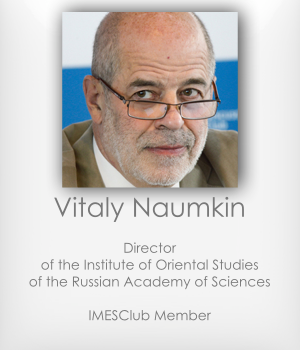 Over the past few weeks, Russia has taken steps to develop its trade and economic ties with Tehran, which plunged to a record low of $1.59 billion last year. In 2013, according to Russian Minister of Energy Alexander Novak, this amounted to a reduction of 31.5%, a consequence of the unilateral US and EU sanctions imposed in mid-2012, which forced companies such as Lukoil and Gazprom Neft to leave the Iranian market.
Over the past few weeks, Russia has taken steps to develop its trade and economic ties with Tehran, which plunged to a record low of $1.59 billion last year. In 2013, according to Russian Minister of Energy Alexander Novak, this amounted to a reduction of 31.5%, a consequence of the unilateral US and EU sanctions imposed in mid-2012, which forced companies such as Lukoil and Gazprom Neft to leave the Iranian market.
The situation should have changed with the agreement reached between Russian President Vladimir V. Putin and his Iranian counterpart, Hassan Rouhani, during the SCO Summit in Bishkek in September 2013, which caused a stir and under the terms of which 500,000 barrels per day of Iranian oil would be delivered in exchange for Russian goods and equipment. By rough estimates, that is 12% of the oil extractable daily in Iran.
Nothing was known, however, about concrete steps to put this agreement into practice until Foreign Minister Sergey Lavrov’s visit last December to Tehran, during which ways to implement it were discussed. One of the items on the table appears to have been the price of the oil, given Moscow’s request for a discount. It was clear that, with the sanctions still standing, the problem would also likely be who would purchase the oil and make the payments and how, considering the threat of US sanctions. According to the Russian newspaper Kommersant, one of the possible options initially suggested was that Rosneft buy the oil. But at the beginning of April the Ministry of Energy decided to choose an authorized trading company which, as the newspaper source explained, “will be a company registered in Russia that — contrary to Rosneft —does not trade on the world market and is thus immune from pressure.”
While it was undeniable that the Iranian side was interested in breaking the trade embargo and obtaining the goods it needed, analysts had to ponder the reasons guiding the Russian side. It was evident that Moscow was not moved by an urgent need to obtain energy carriers from its Middle Eastern partner. During one of the talk shows on the Russian TV channel RBC, participants were even asked the question: “Why should Russia buy Iranian oil?” Actually, back in February, Iranian Ambassador to Russia Mehdi Sanai suggested that, in the negotiations on the supply of Iranian oil in exchange for Russian goods, Moscow and Tehran might agree to invest in the construction of a second unit at the nuclear power plant in Bushehr.
Many Russian analysts were convinced that Russia, predicting the possibility of, if not a full, then at least a partial normalization of Iran's relations with the West and seeing a sharp increase in interest in Iran in Western business circles, set as a first priority the task to “stake out” a place for itself in the Iranian market. While the range of Russian products to be delivered to Tehran in exchange for oil is generally known, though not precisely defined (e.g., metallurgical products, machinery, power equipment and other goods), the basic parameters of the Iranian oil deliveries to Russia have not yet been revealed. It is unknown whether the sides have managed by now to resolve all the issues linked to this deal and come to a final agreement on its implementation.
Read the whole article: http://www.al-monitor.com/pulse/originals/2014/05/iran-russia-oil-exchange-goods-cooperation.html#ixzz31cymuXI6












